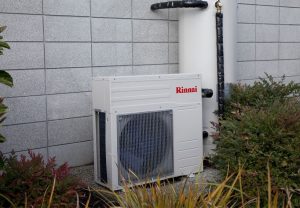Hot water is a necessity for many homes, commercial spaces, and properties. It provides comfort, enhances kitchen efficiency, and promotes hygiene, making it something every property owner should prioritise when mapping out their building’s amenities and structure.
With that said, there are several ways property owners can deliver heated water around their property. One of the most popular ways includes storing water in a centralised storage unit and directing it to various sinks in a building through an extensive plumbing network.
However, an increasingly popular and effective way of delivering heated water around a structure is by using a decentralised hot water system. This system, also known as a point-of-use system, is one wherein individual water heaters are installed at each consumption point, heating water on an as-needed basis.
This can be a particularly useful approach for locations like apartment buildings.
If you’re unsure whether to opt for a centralised or decentralised hot water system, then read on. In this article, we’ll dive into the benefits of a decentralised hot water system and why it may be the superior option for you.
1. Enhanced hygiene
One perk of decentralised hot water systems is the reduced risk of hygiene risks. Typically, with a centralised water system, water will sit in a chamber for an extended period of time, which can foster an environment where bacteria can grow and thrive if not properly maintained.
When people are exposed to this bacteria, health problems can occur.
With a decentralised setup, water doesn’t linger in pipes for extended periods. This helps to deliver hot and quickly, and also clean and fresh.
This added level of hygiene protection makes decentralised hot water systems ideal for a range of domestic and commercial environments.
So, if the hygiene of your hot water is a priority for you, installing a Bromic decentralised hot water system is something you should highly consider.
2. Reduced heat loss
A key benefit of decentralised hot water systems is their ability to reach and retain the desired level of heat relatively easily. This isn’t always the case with traditional centralised systems, as the heated water travels through long pipes, which can cause the water to lose some amount of heat.
On the other hand, a decentralised hot water system’s water supply doesn’t have to travel far to reach the point of use. This means that it retains its heat more efficiently, allowing users to receive hot water quickly and efficiently without overworking the system.
3. Energy efficiency
Another perk of a decentralised heated water system is its improved energy efficiency. With centralised hot water systems, idle water in the centralised system will occasionally be heated to ensure that it maintains a certain level of temperature. This can drain energy and lead to excess electricity costs.
On the other hand, decentralised heated water systems are generally more energy-efficient as they don’t have these considerations. Water travels a much shorter distance to reach the point of use, and can be heated on-demand. This, in turn, makes it easier for property owners to manage their utility bills.
These energy savings also allow you to feel good about your decisions, knowing you’ve made an environmentally-friendly choice.
4. Space efficiency
Decentralised hot water systems are typically compact, making them ideal for properties with limited space. On the other hand, a large central hot water unit takes up a lot of space to install.
If you own a small apartment or commercial space, then you know that every square metre counts. That’s why choosing the right hot water system size is crucial to making the most of your available space. Fortunately, the space efficiency of decentralised hot water systems can be a great boon to your property.
In short, decentralised systems let you maximise your property’s space without sacrificing performance. So, if you want a space-saving solution while still getting access to hot water, then these systems are optimal for your needs.
5. Easier construction and maintenance
Decentralised hot water systems have significantly simplified construction and maintenance processes when compared to centralised systems. Decentralised systems have a reduced reliance on extensive pipe networks. This makes the installation process significantly smoother.
In turn, the installation process can be cheaper when it comes to labour and material costs. Plus, when it comes time to perform maintenance on the system, things are far more localised.
You won’t have to perform maintenance on a centralised system, affecting the water of various people in a situation like an apartment building. Issues can often be dealt with in individual units.
The benefits of simplification make decentralised hot water systems the perfect choice for many buildings.
6. Water conservation
Decentralised hot water systems help reduce water waste by delivering hot water faster and more directly to taps or appliances. You don’t have to allow cold water to spill as you wait for hot water to arrive; decentralised hot water systems bring you heated water much more quickly.
Saving water not only helps promote eco-conscious behaviour and sustainability but also reduces your monthly water bill. This can be especially impactful in commercial settings.
So, if you care about making a positive impact on the environment, getting a decentralised hot water system is a good first step to moving in that direction. The additional cost savings are a great perk on top of that, too.
Decentralised hot water systems offer a significant array of benefits for domestic and commercial properties. In many cases, they’re the best solution for you.
Why decentralised hot water could be the smarter choice
In conclusion, decentralised hot water systems offer numerous advantages, including enhanced hygiene, reduced heat loss, improved energy efficiency, and space-saving benefits.
These systems not only help conserve water but also simplify installation and maintenance, making them ideal for a variety of property types—especially those with limited space or specific efficiency needs.
At the end of the day, the right hot water system can make a big difference to your property’s comfort, functionality, and long-term running costs. If you’re after a solution that’s reliable, hygienic, and suited to modern demands, a decentralised system is well worth considering. Whether you’re fitting out a new build or upgrading an older property, speak to a qualified local hot water plumber to find out if a point-of-use setup is right for your space. At Best Plumbers Club, we connect you with trusted professionals who can help you design and install the ideal hot water solution for your home or business.







